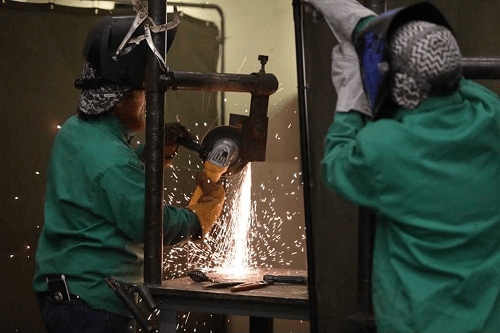
10.1.21 – Mississippi Today by Sara DiNatale
Mississippi’s job training and partnerships with private companies aren’t consistent or extensive enough to grow a bigger and better-skilled workforce, according to Accelerate Mississippi’s first-ever public report.
The 6-month-old office and its director, Ryan Miller, are tasked with setting the state’s disjointed workforce development efforts on a strategic path — one that ends in more Mississippians at jobs that pay $40,000 or more a year.
Miller says that means “looking in the mirror” and assessing how past job training funds were spent. With new legislative guidelines for spending job training funds and Miller at the helm, the state is at the beginning stages of redirecting millions of taxpayer dollars to target skills training for the state’s most in-demand jobs.
“One of the things that frustrates me the most… is when I hear the old saying ‘Why are we doing this?’ and the answer comes back ‘because that’s the way things have always been done,’” Gov. Tate Reeves said during his first joint press conference with the new office earlier this week.
“When it comes to workforce development, I refuse to allow our state to adopt this mentality.”
Accelerate Mississippi’s 2021 “Talent Development Assessment” was published Wednesday. The new office is required to write an annual report under the legislation that created the office and new training dollar guidelines.
“It’s a transition,” Miller told Mississippi Today. “We’re on a path to improve.”
Miller’s office may be new, but the Legislature has put it in charge of a $25 million job training fund, which contains money from the state’s Workforce Enhancement Training.or “WET” fund, and Mississippi Works fund. The pot of money is collected via an unemployment insurance tax on businesses.
In 2020-21, nearly $1 million from the WET fund covered safety training at private companies, according to a Community College Board breakdown. It’s unlikely any federally required safety classes or CPR training will continue to qualify under the new guidelines, Miller said.
Nearly $3 million funded “basic skill” classes across the state’s community college classes during the same period of time. It’s one of the largest uses of any of the WET funds.
Miller said if those classes don’t show paths to career advancement or opportunities for better wages, that WET funds will likely no longer cover them.
“We have to prioritize with the limited funding for which we have responsibility,” Miller said. “We make those decisions on priority based upon data, and the input from our industry sector.”
The bulk of the money was previously under the guidance of the state’s Community College Board, which is still involved in the spending and its disbursement among the state’s 15 community campuses.
The Accelerate Mississippi report specifies that state money has funded programs that were “important to individual communities” that no longer fit under the new office’s state-mandated guidelines to target fields with the largest gaps in skilled workers.
The report highlights linemen to metal workers and nurses as some of the most in-demand, and above-average-paying jobs with the largest gap between the number of graduated skilled workers and open positions.
It also says the state needs to collaborate to improve its funded job training efforts; that there have been “micro” successes but few on a “macro” level. The state’s successes often happened in silos, without the collaboration needed to “improver offerings and optimize the use of workforce training funds.”
To do that, Reeves and Miller announced it will be breaking the state up into eight regions or “ecosystems.” Each area will have an Accelerate Mississippi representative to understand the niche job skill needs of that community.
The state already has four local workforce development areas that are manned by offices called the Planning and Development Districts. Each of those designated areas will have two of the “ecosystems” within them.
Miller said the new Accelerate Mississippi positions won’t duplicate the existing efforts, but complement them.
